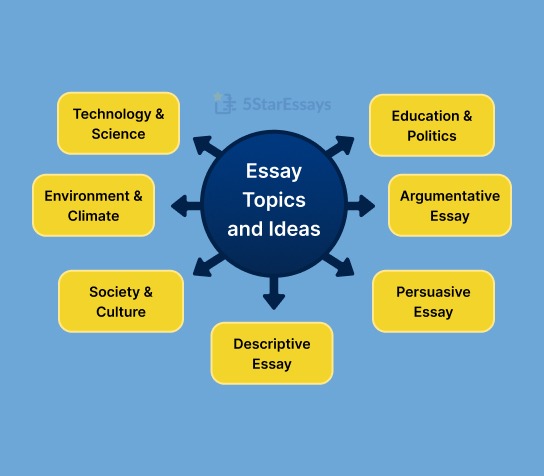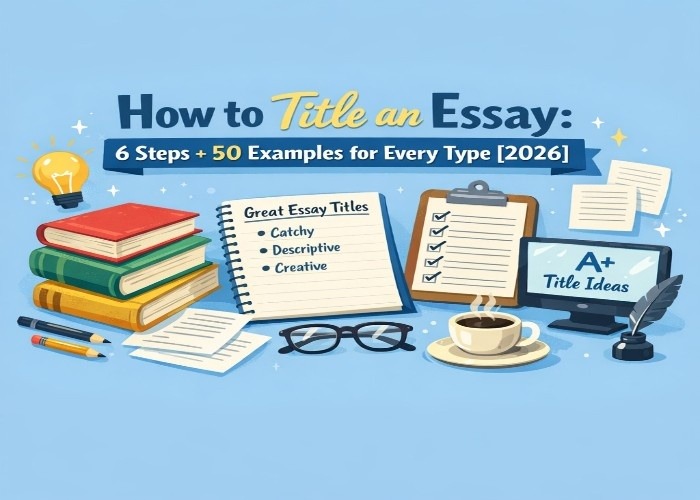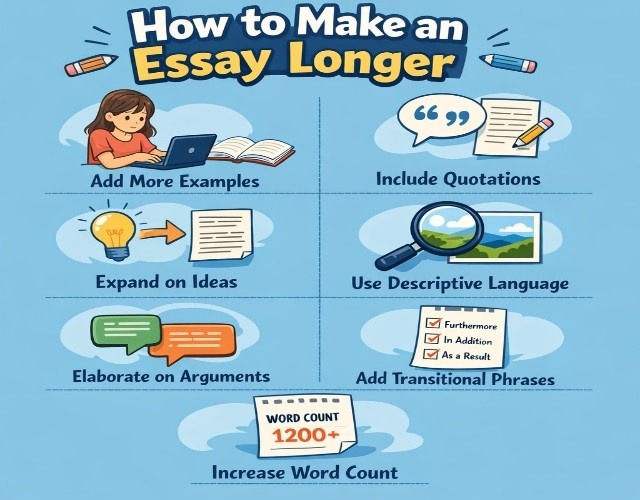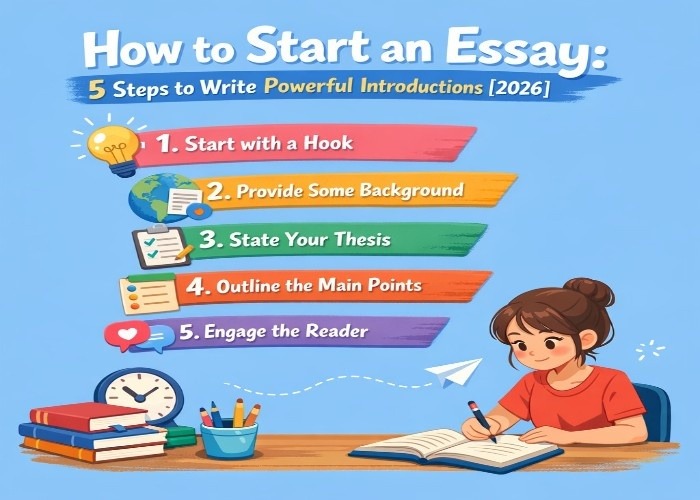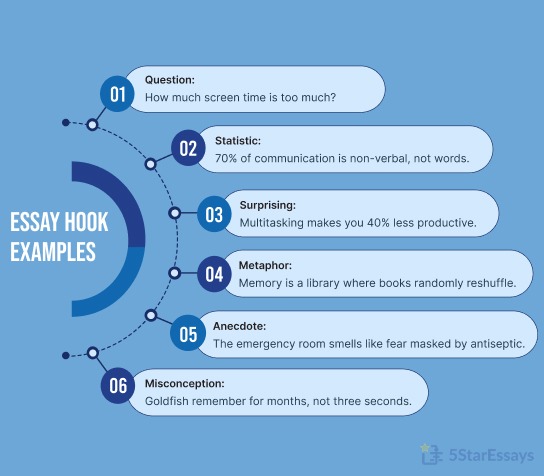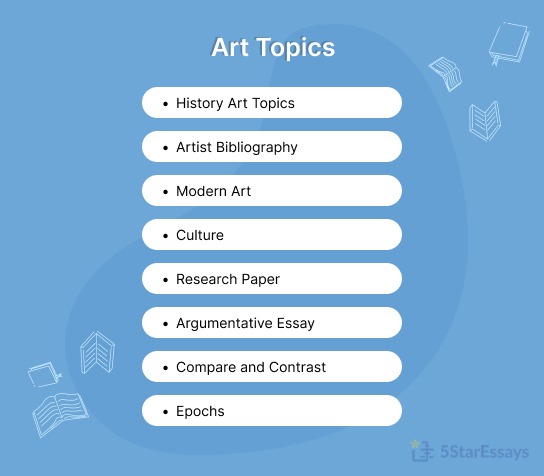What are the Different Types of Sentences?
Writing is a part of our daily lives and we have been doing it since our childhood. Do you know that a sentence also has different types? It may come as a surprise for many of us but it is true. A sentence has different types and all of them are used for different reasons and intentions.
Knowing about different types of sentences helps in writing excellent analytical and descriptive essays. These essays are extremely visual and illustrative and this is what actually makes them so appealing and interesting.
‘What are the 4 types of sentences?’
Following are the 4 types of sentences used in the English language:
Declarative Sentences
This is the most basic kind of sentence. A declarative sentence is a sentence that makes a statement and presents basic information. It could be a simple one-line sentence or a long-form complex one having connectors.
It is usually an active voice and is the most commonly used type of sentence. Moreover, declarative sentences usually end with a period.

Examples:
- My daughter is a volleyball champion.
- Students do not work hard and this is why they often fail.
- Italian food is usually based on spaghetti and meatballs.
- The United States has fifty states.
- I love to have desserts at breakfast.
- The dog chased the boy.
- My sister loves to run, but my brother prefers to walk.
- She wears black nail polish.
- London is the capital of England.
- The dog is sleeping on the couch.
Interrogative Sentence
Interrogative sentences are based on asking questions and end on a question mark. They represent that a person is asking a question.
They can be simple and have what, how, when, and where in them and they can also be complex like the rhetorical type of questions. But, generally, a simple form is used.
These sentences ask questions and could be both simple and compound-complex sentences having both an independent clause and a dependent clause.

Examples:
- What is your name?
- Do you know that Niagara Falls is in Canada?
- Did you do your tasks for the day?
- Can you tell me the address to Taksim Square?
- Do you know that excessive carbohydrates are one of the main reasons for a heart attack?
- Why is the sky blue?
- Where is your new dog?
- To whom shall I give the test results?
- Have you watched the movie?
- Can I borrow your chemistry book for a day?
Exclamatory Sentence
These sentences express strong emotions and end with an exclamation mark. Ever felt like shouting?
This is the kind of sentence that you want to use to express this strong emotion.

Examples:
- What a huge dog you have!
- Such an overwhelming experience!
- What a great movie!
- He is going to hit his head!
- The sun is so bright today!
- I got concert tickets!
- What a cute puppy!
- That birthday cake was so good!
- He is such a kind soul!
- You are such a liar!
Imperative Sentence
Wondering what is an imperative sentence?
An imperative sentence gives a command or is a request. An interesting thing about this type of sentence is that it could end with a full stop, a period, and an exclamation point.

Examples:
- Shut the door now!
- Please do not make noise.
- Stop shouting!
- Please have a seat.
- Don’t try to be rude to me.
- Bring me a glass of water.
- Don't stay out at night.
- Please grant me a loan.
- Pass the salt.
- Please be quiet.
4 Types Of Sentences According To Structures
There are four main types of sentence structures in English:
Simple Sentences
A simple sentence is the most basic type of sentence structure. It consists of a single independent clause that expresses a complete thought.
An independent clause contains a subject (the person or thing the sentence is about) and a verb (the action or state of being).
Simple sentences are often used to convey straightforward information or make simple statements.
Examples:
- "I love to read."
- "She sings beautifully."
- "The sun sets in the west."
- "He plays soccer every weekend."
Compound Sentences
A compound sentence is formed by combining two or more independent clauses. These independent clauses are joined together using coordinating conjunctions (such as "and," "but," "or," "so," "for," etc.) or semicolons.
Each independent clause can stand alone as a separate sentence. Compound sentences are used to connect related thoughts or ideas and show a relationship between them.
Examples:
- "I love to read, and she enjoys writing."
- "She sings beautifully, but he dances gracefully."
- "The sun sets in the west; the moon rises in the east."
- "He plays soccer every weekend, or he goes for a swim."
Complex Sentences
A complex sentence contains one independent clause and at least one dependent clause. The independent clause can stand alone as a sentence, but the dependent clause cannot.
The dependent clause is introduced by subordinating conjunctions (such as "because," "although," "if," "when," "since," etc.) and provides additional information or adds a condition to the independent clause.
Complex sentences are used to express complex relationships, cause, and effect, or provide context.
Examples:
- "I love to read because it broadens my horizons."
- "She sings beautifully when she's happy."
- "The sun sets in the west although some people think otherwise."
- "He plays soccer every weekend if the weather permits."
Compound-Complex Sentences
A compound-complex sentence combines elements of both compound and complex sentences. It contains two or more independent clauses and at least one dependent clause.
These clauses are joined together using coordinating conjunctions and subordinating conjunctions.
Compound-complex sentences are used to express more intricate relationships and present a combination of ideas in a single sentence.
Examples:
- "I love to read because it broadens my horizons, and she enjoys writing."
- "She sings beautifully when she's happy, but he dances gracefully when he's sad."
- "The sun sets in the west although some people think otherwise, and the moon rises in the east."
- "He plays soccer every weekend if the weather permits, or he goes for a swim if it's too hot."
Using Different Sentence Types in Your Writing
Though declarative sentences are commonly used in writing, relying solely on this sentence type can result in monotonous and unengaging text. Consider the following paragraph:
| The restaurant serves delicious food. The menu offers a variety of options. The atmosphere is cozy and inviting. The staff is friendly and attentive. |
All four sentences are declarative, leading to a lack of variety and impact. Now, let's explore how incorporating different sentence types can enhance the paragraph:
| Craving a delightful dining experience? Look no further than the restaurant, where every dish tantalizes your taste buds. Whether you prefer savory or sweet, the menu entices you with a wide array of delectable options. Step inside and immerse yourself in the cozy and inviting atmosphere, where warmth embraces you. As you savor your meal, the friendly and attentive staff ensures your every need is met. |
In the revised paragraph, various sentence types were introduced to create a more engaging and vibrant piece.
The interrogative sentence grabs the reader's attention, the exclamatory sentence adds enthusiasm, and the descriptive sentences paint a vivid picture.
By using a mix of sentence types, the paragraph becomes more dynamic and captivating, drawing the reader in.
In conclusion,
understanding the different types of sentences is essential for enhancing your writing skills and creating engaging content.
By incorporating a variety of sentence structures, you can add depth to your writing and capture your readers' attention.
To further enhance your writing skills and achieve exceptional results, you can buy essay from professionals at 5staressays.com.
Our team of experienced essay writers is dedicated to providing top-notch academic and professional writing services.
Reach out to our essay service today and take your writing to the next level! Just say and leave the rest to us!


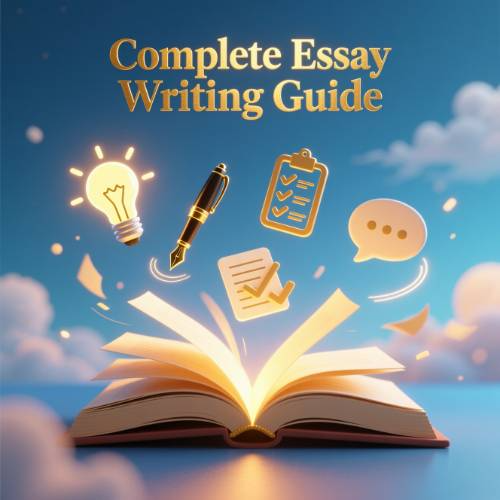





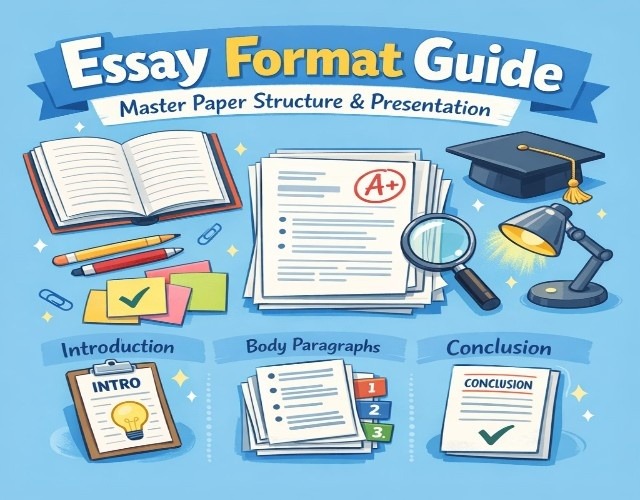
-20154.jpg)
